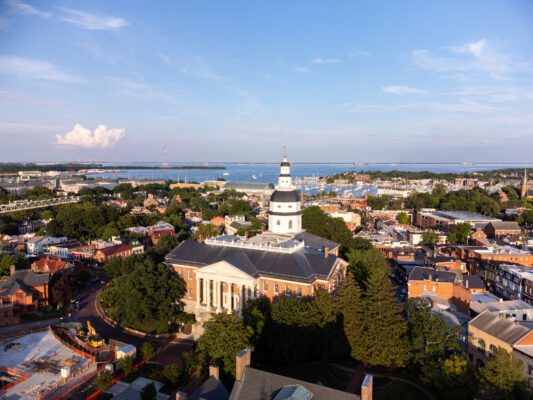If we as Christians truly stand as defenders of the sanctity and dignity of all human life, our nation’s current response to the global refugee crisis ought to be of significant concern.
God’s love for the immigrant, refugee, and foreigner is a consistent biblical theme, and he calls his people to do the same. Jesus Christ himself, the greatest example of love, implores us to love our neighbor as we love ourselves, regardless of race, nationality, religion, or status.
The UNHCR estimates more than 71 million people are forcibly displaced around the world. This is the largest humanitarian crisis the world has ever seen. If no one intervenes on their behalf, the vast majority will remain displaced in or around their countries for 10 years or more.
When the current administration’s travel ban was announced in 2017, promises were made that we would continue resettlement with a shift in focus toward persecuted Christians and others in the most desperate situations. Instead, we have dismantled many parts of the program and reduced the total number of refugees resettled each year from 85,000 in fiscal year (FY) 2016 to less than 30,000 in FY 2019. Now the White House has announced the ceiling planned for FY 2020 will be 18,000, with stipulations put in place that could reduce that number even further depending on decisions made at the state level. This means our resettlement numbers will be even less than 2002, the year after 9/11.
If this decision stands, many people in the most desperate situations who would add great benefit to our nation will continue to languish in dreadful conditions. Furthermore, threats to national and global security will increase because of prolonged exposure to extremism. As the rest of the world watches us, other developed countries will follow our lead, and global refugee admissions will drop, as occurred after our reductions in 2017.
It is entirely possible to articulate a generous position toward the world’s most vulnerable people while also being committed to national security and upholding our laws.
We all know immigration-related topics are just as contentious in our churches as anywhere else in our current sociopolitical climate, but it is entirely possible to articulate a generous position toward the world’s most vulnerable people while also being committed to national security and upholding our laws.
According to a report published by USCIS in 2018, our refugee resettlement program is continually improving its already stringent screening and vetting processes. These include biometric and biographic checks at multiple points, in-person interviews, and multiple security and medical clearances before a person or family is admitted into the U.S. The highest priority is given to people facing the gravest dangers, including women and children, and to family reunification of spouses, children, and parents. Many people are surprised to learn that the top four countries from which the U.S. government currently resettles refugees are the Democratic Republic of Congo, Myanmar, Ukraine, and Bhutan.
Our church in Tulsa, Oklahoma, was blessed to receive a young refugee family from one of these countries in 2017. They were accepted for refugee resettlement because they were experiencing persecution for their Christian faith. The parents and children immediately became involved in our church and remain an active part of our ministries. The wife often reads Scripture in worship in English and in her heart language. Both parents have secured jobs and are contributing to our city. To us they are living proof that refugee resettlement is of great value to both the refugees themselves and the communities who receive them. If the changes at hand do take place in the U.S., no Christian refugee families from their country will be considered for resettlement.
In July, evangelical leaders, including Russell Moore and several pastors connected to the ERLC, sent a letter to the White House which began with the words, “Recognizing God’s love for the vulnerable and the persecuted, we are concerned for all who have fled persecution and who urgently need protection. And we are particularly concerned about the potential impact of your decision on fellow believers who are being persecuted for their faith.”
In August, a group of 18 U.S. senators representing more than a third of U.S. states crossed the political aisle by sending a bi-partisan letter to the executive branch, imploring them “to increase the refugee resettlement cap and to admit as many refugees as possible within that cap.” The letter goes on to state:
“At a time when global leadership is needed more than ever to solve the complex refugee problem — both at home and abroad — the United States is well-positioned to continue its long legacy as a protector of human rights. Refugee resettlement combines the compassion of America with an important tool necessary to pursue foreign policy objectives.”
After the White House made its announcement on Sept. 26, 2019, Sen. James Lankford, who was a co-author on the letter mentioned above, released a statement which said, in part:
“I’m disappointed to see that the Administration has once again decided to decrease the number of refugees we allow into our country . . . Just this week, the President spoke at the United Nations to implore the rest of the world to end religious persecution. Doing so means we should continue to share our values throughout the world, and we can also be an example of being a safe haven for those legitimately fleeing persecution. The Administration should consult Congress and finalize an FY2020 cap that is consistent with our nation’s values and foreign policy goals.”
Several military leaders have also recently added their voices in support of increased refugee resettlement. A group of more than two dozen retired U.S. generals and admirals sent a letter to the White House stressing that our refugee resettlement program has “provided life-saving assistance, demonstrated our humanitarian leadership and values, supported allies hosting the vast majority of refugees, and served critical national security interests.”
If senators from both parties and commanding officers from multiple branches of the military can come to an agreement on continuing to resettle refugees generously and responsibly, certainly Christians and churches can work toward the same. We should be the most willing to overcome differences of opinion and partisanship for the dignity of hurting people. There are still important decisions to be made on behalf of displaced people all over the world. Let’s continue to implore the leaders of our incredibly blessed and prosperous nation to maximize our commitment to the vulnerable in a way that reflects how gracious and generous we are.
A form of this article originally appeared here.










